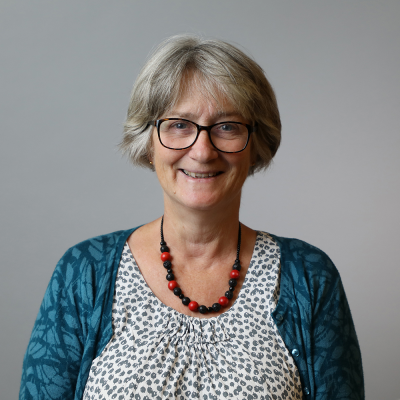Collaborating on the wider determinants of health
17 January 2022

The Health Foundation’s COVID-19 impact inquiry highlighted how deep-rooted issues – poor health, financial insecurity and strained public services – left the UK more vulnerable to the health and economic impacts of the pandemic. I am struck by how clearly COVID-19 has amplified the stark health inequalities within our society, underlining the need to look beyond health care and improve the many wider determinants of health – from welfare and housing to employment and transport.
Our recent programme, Collaborative action on the social determinants of health, has provided examples of developing capacity and understanding about the ways different sectors can influence health and wellbeing. The grant programme, led by the UK Public Health Network, awarded funding to five cross-sector partnership projects able to implement front-line interventions to address the wider determinants of health.
This programme – the Health Foundation’s first in the public health space – has supported innovative ideas, as well as paving the way for our subsequent programmes, Shaping Places for Healthier Lives and Economies for Healthier Lives. Despite the disruption from the pandemic, the five projects funded have provided valuable insights for those wanting to mobilise cross-sector action to address health inequalities.
Cross-sector working
The projects demonstrate the value of collaboration and partnerships that engage other sectors outside of public health. The Royal Society of Public Health (RSPH) led two projects in the programme. One aimed to understand how community spirit (the feelings of connection and belonging to a community and our ability to come together to improve wellbeing for everybody) affects health and wellbeing, enabling local community organisations to influence their local systems, and developing a ‘Community Spirit Level’ tool. The other RSPH project aimed to help local health and care systems understand the scale and impact of financial insecurity and debt on their populations, in order to inform strategy and actions, such as a local Financial Inclusion Network.
The RSPH found working with organisations within the welfare system provided insight into how the system operates, as well as how to access and support communities in a practical way. It highlighted the different contexts and constructs within the health and welfare sector and the need to:
- ensure consistency in understanding and language, particularly among non-health partners
- foster a shared responsibility for social issues
- enable greater information gathering and sharing across sectors
- enhance attempts to prevent, mitigate and resolve issues before they start to harm health.
These themes will be relevant to action across other determinants of health, as well as in any COVID-19 recovery programme.
System leadership
The public health role in system leadership was a critical element of all the partnership projects. The Association of Directors of Public Health (ADPH) project, Creating ACE-informed places, demonstrated the role that national public health leadership organisations can play in providing system leadership and convening other sectors to mobilise around action to create the conditions for healthy lives.
The project worked with stakeholders across the system to consider the impact of adverse childhood events (ACEs) and wider vulnerabilities. ADPH built a strong network of stakeholders (including local authority public health teams, schools, GPs, sexual health services, mental health services, health visitors and midwives, housing associations, and police and crime commissioners) and has continued to share findings and encourage learning across the system. The project highlighted the value of trauma-informed approaches when applied as part of a whole-system effort to tackle ACEs by engaging services across the life course.
Co-production with service users
The projects also underlined the value of co-production and active participation of communities, so that what matters to communities sits at the core of public health policies. The CAPITAL project tested the impact of an asset-based community development approach on building the social networks of social housing tenants and people seeking sanctuary. Both the CAPITAL and ACEs projects highlighted the benefits of co-production with service users, although they found that building trust can take time. The RSPH project on financial insecurity also focused on local level action.
These projects have provided practical lessons for the post-COVID world. Useful outputs include:
- a position statement on childhood adversity and vulnerability
- four bespoke resources for the housing, policing, health and education sectors on ACEs
- a Sector-Led Improvement (SLI) tool to support areas to deliver a system-wide trauma-informed approach, intended to help provide challenge and support the development (and subsequent review) of an action plan
- a Community Spirit Level tool which provides a framework for communities, and those who support them, for measuring, improving and sustaining community spirit
- a Roadmap to Inclusive Co-production and the Evaluation from the CAPITAL project.
These could all be scaled up or used elsewhere in the UK.
The context has changed since the awards were made, not least in terms of greater awareness of health inequalities. Collectively these five projects have provided examples of how changing conversations and working collaboratively with system partners to take action on the social determinants of health can help to improve health in a place and for specific population groups.
By adding to the evidence base on interventions which address the wider determinants of health, and by using data and insights to inform local planning and decision making, these projects can help the public health community find new ways to strengthen its influence and impact in the post-COVID world.
Liz Cairncross is a consultant in the research team at the Health Foundation.
Further reading
Further reading
Work with us
We look for talented and passionate individuals as everyone at the Health Foundation has an important role to play.
View current vacanciesThe Q community
Q is an initiative connecting people with improvement expertise across the UK.
Find out more

